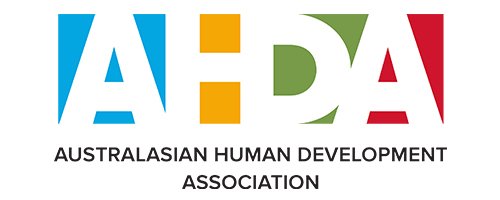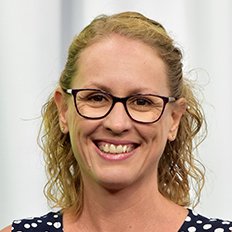AHDA Member Spotlight: Cassy Dittman & Riley Scott
Our Member Spotlight is designed to introduce our members to one another and to highlight information about research, interests and opportunities in this space. We continue this series by introducing you to our Secretary, Cassy Dittman, and our Communications Director, Riley Scott. For more information on who is involved in the Executive Committee and our Regional Representatives, please visit our Leadership page
Dr Cassy Dittman
Dr Cassy Dittman is the Secretary for AHDA and a Lecturer for Psychology in the School of Health, Medical, and Applied Sciences at CQ University.
Cassy received her PhD in Clinical Psychology from The University of Queensland and previously worked as a Research Fellow and as the Head of Curriculum Development at the Parenting and Family Support Centre (PFSC) at The University of Queensland. The PFSC is the home of the internationally recognised Triple P – Positive Parenting Program system of interventions. Cassy is an Honorary Research Fellow at The University of Queensland and has also worked at The University of Auckland.
What does your research explore/investigate?
My research focuses on the impact of parenting and parent-child relationships on child and adolescent development and wellbeing. Much of my work is in the field of evidence-based parenting programs and their capacity to promote behavioural and emotional adjustment and positive development. My research has involved the development and evaluation of innovative ways to improve the reach and accessibility of evidence-based parenting programs by investigating the benefits of online programs and brief, targeted parenting support, as well as applying parenting programs in different contexts, such as junior sport and early childhood education. I also have a newfound interest in the parenting of adolescents and emerging adults, and the continued importance of parents across that critical developmental transition into adulthood.
Do you have any advice for Early Career Researchers/Post-docs/PhD candidates?
I have three pieces of advice for ECRs:
1) Find your tribe. Put yourself out there early to make connections with other early career researchers and mid-career researchers and work together, in a mutually-beneficial way, to build your research profile and track records. Senior mentors are great, but my experience is that good ones are hard to find, and you can’t always rely on them to support your career in ways that your peers are more willing to do.
2) Remember that there is life outside of academia (and remind others of this too). Academia can be hard work and the energy you need to sustain it will ebb and flow as your real life changes and evolves. Don’t be afraid to be kind to yourself and realise that there will be times that your personal life (e.g., having/raising a family, building/enjoying couple relationships) must take precedence, and it is OK to take a career disruption if needed. Although there is an urgency to submit that next paper or bid for that awesome grant, all those things will still be there once you return.
3) Embrace your expertise. You haven’t spent all these years studying and working on research for nothing. You have a wealth of knowledge, but you might just need some help figuring out how to share that knowledge in a way that is accessible for the general population (or other non-psychology academics). Once you have that confidence (or at least fake it until you make it), it is quite enjoyable and rewarding to share your expertise by engaging with the media, speaking at community events or for hosting professional development activities.
Riley Scott
Riley Scott is the Communications Director for AHDA and a PhD Candidate in the School of Applied Psychology at Griffith University.
Riley received her Bachelor of Psychological Science (Honours) from Griffith University in 2017 and is now completing her PhD under the supervision of Dr Jaimee Stuart and Professor Bonnie Barber.
What does your research explore/investigate?
Broadly, my research explores the social lives of young people across online and offline (face-to-face) settings. I’m interested in the ways young people think, feel and act online, and particularly keen on exploring and promoting the positive outcomes of internet use for social connection. My PhD research looks at the interplay between personal characteristics and perceptions of the internet in young adults’ friendships and social well-being. For example, one of my PhD studies explores whether the associations between social vulnerabilities (social anxiety and loneliness) and friendship quality differ for young adults who primarily interact with their friends in online versus offline settings. While I am working towards shifting the discourse around online experiences to highlight the positive outcomes associated with social internet use, I have also looked at outcomes of internet use such as adolescent alcohol use and cyberbullying.
What do you love best about being a researcher?
My love for research and for being a researcher has steadily grown over the last 4 years, for many reasons. I love that I am constantly learning and being challenged, not only in terms of my abilities to write, run data analyses, and think about complex issues, but because I am learning more about my own assumptions and expectations, and learning how to navigate the unexpected. I also really enjoy sharing my knowledge and findings both with the academic community and with friends. I’m excited and motivated by the fact that my knowledge and research can be used to help people, and to provide an explanation to previously unanswered questions. Two of the things that I love the most about being a researcher are being part of an incredible team with my supervisors and peers, and meeting likeminded people who care about sharing information and helping others.
Please visit and like our Facebook page to see the full highlights for Cassy and Riley!



